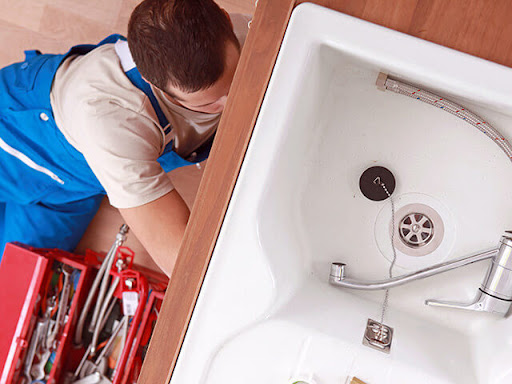
Home renovations are often viewed as a thrilling endeavor, providing homeowners the opportunity to enhance both the aesthetic appeal and functionality of their living spaces. While aspects like design, layout, and materials are often at the forefront of renovation plans, plumbing tends to be overlooked. However, plumbing is a critical backbone of any home renovation, especially in areas like kitchens, bathrooms, and laundry rooms. Addressing plumbing issues during the renovation process can not only prevent costly mistakes but also ensure that your home runs smoothly for years to come.
In this post, we’ll explore the essential role plumbing plays in home renovations, what factors need to be considered, and expert tips to help you plan your project effectively.
Why Plumbing is Critical in Home Renovations
Plumbing serves as the circulatory system of your home. Water, gas, and waste disposal systems all rely on a well-planned and properly functioning plumbing network. Renovating without properly assessing the plumbing infrastructure can lead to major issues, such as leaks, water damage, or poor water pressure.
Whether you’re updating a kitchen or creating a luxurious bathroom, plumbing plays a pivotal role in the overall success of the project. For example, kitchens require precise plumbing to support sinks, dishwashers, and potentially gas stoves. Bathrooms, on the other hand, depend on plumbing for showers, toilets, sinks, and bathtubs. Improperly designed plumbing layouts can create inefficient spaces, disrupt daily routines, and even diminish the long-term value of your home.
Key Plumbing Considerations During Renovations
1. Assessing Existing Plumbing Systems
Before undertaking any major renovation, it is essential to inspect the existing plumbing system. A professional plumber should evaluate the condition of the pipes, drains, and fixtures. This helps in determining whether parts of the system need to be replaced or if they can be integrated into the new design.
Older homes may have plumbing made from outdated materials like galvanized steel or lead, which are prone to corrosion or health risks. Upgrading to modern materials such as copper, PEX (cross-linked polyethylene), or CPVC (chlorinated polyvinyl chloride) may be necessary to ensure longevity and safety.
2. Design Layout and Water Efficiency
A well-planned plumbing design is crucial in ensuring that water flows efficiently through the system. When planning your renovation, particularly for bathrooms and kitchens, consider how the placement of sinks, toilets, and appliances impacts water flow. For instance, placing fixtures too far from the main water line can reduce water pressure and increase energy consumption as the water heater works harder to pump water.
Moreover, consider installing water-efficient fixtures such as low-flow toilets, aerated faucets, and energy-efficient water heaters. Not only do these features conserve water, but they also reduce long-term utility costs.
3. Relocating Plumbing Fixtures
If your renovation involves moving fixtures such as sinks, showers, or toilets, it can significantly impact the plumbing layout. Relocating these fixtures often requires rerouting pipes, drains, and venting systems. Moving fixtures is a complex task that demands careful planning and the expertise of a licensed plumber to ensure all code requirements are met and that the system remains functional.
For example, relocating a toilet involves not only moving the water supply line but also the waste line, which must have a proper slope to allow for efficient drainage. Failing to account for these details can result in slow drainage or unpleasant odors due to improper venting.
4. Venting and Drainage
One often overlooked aspect of plumbing is venting. Vent pipes allow air to enter the plumbing system, helping to maintain proper water pressure and ensuring smooth drainage. Without adequate venting, you may experience gurgling sounds in your pipes, slow drains, or even water backup. Any major renovation that involves moving or installing new plumbing fixtures should include a thorough evaluation of the venting system to prevent future issues.
Additionally, drainage is another critical consideration. Ensuring that your drainage system is capable of handling the increased load from new fixtures or appliances is essential in preventing clogs and backups. In some cases, upgrading the size of your drainage pipes may be necessary, especially if you’re installing larger fixtures like whirlpool tubs or high-efficiency washing machines.
5. Water Heater Capacity
If your renovation includes adding a new bathroom or expanding an existing one, it’s important to evaluate whether your current water heater can support the additional demand. A small or outdated water heater may struggle to provide enough hot water, leading to inefficient energy use and higher utility bills.
In some cases, upgrading to a tankless water heater or increasing the size of your current system may be necessary. Tankless water heaters, in particular, are popular in renovations as they offer on-demand hot water, which is both energy-efficient and space-saving.
6. Permits and Building Codes
Plumbing work, especially in renovations, often requires permits and must comply with local building codes. Failing to obtain the necessary permits or adhere to regulations can result in fines, delays, or, in the worst-case scenario, needing to tear out work that’s already been completed.
Professional plumbers are familiar with the codes and can help navigate the paperwork and inspections required for your project. Following code ensures the plumbing system is safe, reliable, and approved by local authorities, adding peace of mind and preventing future complications when selling your home.

Common Plumbing Challenges in Renovations
Despite the best planning, plumbing in renovations can still present challenges. Below are some common issues homeowners face during the process:
1. Hidden Problems
When you start tearing down walls or floors during a renovation, you may uncover hidden plumbing problems that weren’t apparent during the initial inspection. These can include corroded pipes, mold caused by slow leaks, or poorly designed plumbing from previous renovations. Addressing these issues as they arise is crucial to preventing future damage. Visit https://hi-techplumbingandair.com/plumbing-palm-beach-gardens/ where you will find lots of great information and practical advice about
2. Budget Overruns
Plumbing work can be expensive, especially if significant changes or upgrades are required. Hidden issues, such as needing to replace old pipes or reroute major systems, can quickly inflate the budget. To avoid unexpected costs, always allocate a contingency fund for your renovation project, typically 10-15% of the total budget.
3. Coordinating with Other Trades
Plumbing work often needs to be coordinated with other aspects of the renovation, such as electrical or structural changes. For example, if you’re installing a new bathroom, the placement of electrical outlets must align with plumbing fixtures to ensure safety and functionality. Hiring a general contractor who can coordinate between trades is a smart way to keep the project running smoothly.
The Role of Professional Plumbers in Renovations
Hiring a qualified plumber for your home renovation is essential to the project’s success. Professional plumbers bring expertise, experience, and knowledge of building codes, ensuring that your renovation complies with regulations and functions properly.
Additionally, professional plumbers can identify potential issues early, recommend upgrades or alternatives, and prevent costly mistakes that DIY attempts or inexperienced contractors might overlook. Their involvement in the planning stage can help streamline the renovation process, reducing the likelihood of delays and ensuring a smoother overall project.
Conclusion
Plumbing plays an integral role in the success of any home renovation. From assessing existing systems and ensuring compliance with building codes to relocating fixtures and upgrading water heaters, plumbing requires careful consideration and expertise. By addressing plumbing early in the renovation process and working with experienced professionals, you can prevent costly mistakes and ensure a more efficient, enjoyable home for years to come. Whether you’re remodeling a bathroom, upgrading your kitchen, or adding a new space, plumbing is the foundation of a functional and comfortable home.





